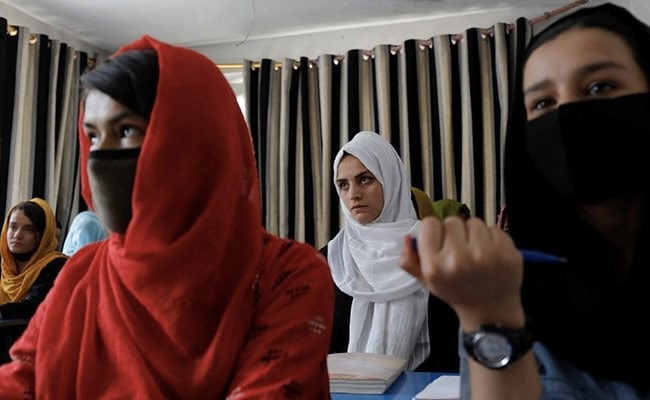| Translate This News In |
|---|
Monesa Mubarez is not about to give up the privileges she and other Afghan women gained during 20 years of Western-backed governance.
Before the hardline Islamist Taliban movement swept back to power a year ago, the 31-year-old worked as a director of policy monitoring at the finance ministry.
She was one of many women, mainly in big cities, who obtained liberties that a prior generation could not have imagined under the Taliban’s previous leadership in the late 1990s.
Mubarez now has no job since the Taliban’s rigid interpretation of Islamic law severely limited women’s capacity to work, ordered them to dress and act conservatively, and closed secondary schools to girls across the country.
The new government has no women in the cabinet, and the Ministry of Women’s Affairs has been closed down.
Despite the risk of being beaten and detained by Taliban fighters patrolling the streets in the weeks following the overthrow of the Western-backed government, she participated in multiple protests that erupted, determined to safeguard her hard-won rights.
Those protests have subsided; Mubarez last took part in one on May 10.
However, she and others gather in private houses in acts of resistance, discussing women’s rights and urging people to join the cause. Such gatherings would have been inconceivable when the Taliban ruled Afghanistan.
Alison Davidian, the UN Women national representative in Afghanistan, stated that experiences like Mubarez’s are common throughout the country.
“Walking outside your front door is an ordinary part of life for many women around the world,” she remarked. “It’s extraordinary for many Afghan women. It is a defiant act.”
While the norms governing women’s public behaviour are not always apparent, in relatively open urban centres such as Kabul, ladies frequently travel without a male chaperone. That is less common in more conservative parts of the country, primarily in the south and east.
When travelling more than 78 kilometres, all women are required to travel with a male chaperone (48 miles).
stumbling block
The Taliban’s abuse of girls and women is one of the primary reasons why the international community refuses to recognise Afghanistan’s new leadership, thereby cutting off billions of dollars in aid and deepening an economic catastrophe.
Rights groups and other governments have also condemned the group for abuses and thousands of civilian fatalities while conducting an insurgency against US-led foreign troops and Afghan forces between 2001 and 2021.
The Taliban stated that they were resisting foreign occupation and have promised not to pursue vendettas against old adversaries after regaining power. Last year, officials stated they would look into reports of retaliation.
Afghanistan is the only country in the world where girls are not allowed to attend high school.
In March, the group stated that female secondary schools will reopen, only to reverse its decision on the very morning that many girls had arrived excitedly for school.
Some have been able to enrol in private tutoring or online classes to further their knowledge.
“We are optimistic about schools returning,” said Kerishma Rasheedi, 16, who began private tuition as a stopgap measure. She wishes to flee the country with her parents in order to return to school if the schools in Afghanistan stay closed.
“I will never stop learning,” Rasheedi stated. Her family relocated to Kabul from the northern region of Kunduz after their home was destroyed by rockets during battles in 2020.
The worldwide community continues to campaign for women’s rights and leadership roles in public and political life. Some women stated they had little choice but to embrace the new rules in order to make ends meet.
Gulestan Safari, a former female police officer, was forced to change her job after the Taliban barred her from joining the service.
Safari, 45, now does housework for other Kabul families.
“I loved my job… we could afford to buy anything we wanted; we could buy meat and fruit.”


















